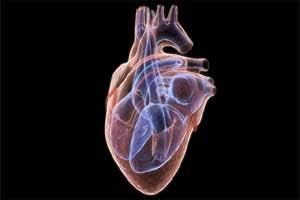- Home
- Medical news & Guidelines
- Anesthesiology
- Cardiology and CTVS
- Critical Care
- Dentistry
- Dermatology
- Diabetes and Endocrinology
- ENT
- Gastroenterology
- Medicine
- Nephrology
- Neurology
- Obstretics-Gynaecology
- Oncology
- Ophthalmology
- Orthopaedics
- Pediatrics-Neonatology
- Psychiatry
- Pulmonology
- Radiology
- Surgery
- Urology
- Laboratory Medicine
- Diet
- Nursing
- Paramedical
- Physiotherapy
- Health news
- Fact Check
- Bone Health Fact Check
- Brain Health Fact Check
- Cancer Related Fact Check
- Child Care Fact Check
- Dental and oral health fact check
- Diabetes and metabolic health fact check
- Diet and Nutrition Fact Check
- Eye and ENT Care Fact Check
- Fitness fact check
- Gut health fact check
- Heart health fact check
- Kidney health fact check
- Medical education fact check
- Men's health fact check
- Respiratory fact check
- Skin and hair care fact check
- Vaccine and Immunization fact check
- Women's health fact check
- AYUSH
- State News
- Andaman and Nicobar Islands
- Andhra Pradesh
- Arunachal Pradesh
- Assam
- Bihar
- Chandigarh
- Chattisgarh
- Dadra and Nagar Haveli
- Daman and Diu
- Delhi
- Goa
- Gujarat
- Haryana
- Himachal Pradesh
- Jammu & Kashmir
- Jharkhand
- Karnataka
- Kerala
- Ladakh
- Lakshadweep
- Madhya Pradesh
- Maharashtra
- Manipur
- Meghalaya
- Mizoram
- Nagaland
- Odisha
- Puducherry
- Punjab
- Rajasthan
- Sikkim
- Tamil Nadu
- Telangana
- Tripura
- Uttar Pradesh
- Uttrakhand
- West Bengal
- Medical Education
- Industry
Slow heart rate doesn't mean early death risk

Washington: If you often suffer from Bradycardia, a slower than normal heartbeat, then there is no need to panic as a new study has revealed that it is not a sign of developing cardiovascular disease.
Researchers from Wake Forest Baptist Medical Center have found that the heart usually beats between 60 and 100 times a minute in an adult at rest, but with bradycardia, the heart beats fewer than 50 times a minute and this condition can cause light-headedness, shortness of breath, fainting or chest pain due to the heart not pumping enough oxygen-rich blood through the body.
However, researchers said until now, there had not been any research to determine if a slow heart rate contributed to the development of cardiovascular disease.
Researchers established that a heart rate (HR) of less than 50 was not associated with an elevated risk of cardiovascular disease in participants regardless of whether they were taking HR-modifying drugs, such as beta blockers and calcium channel blockers.
Lead author Ajay Dharod opined Bradycardia may be problematic in people who are taking medications that also slow their heart rate.
He added that further research is needed to determine whether this association is causally linked to heart rate or to the use of these drugs.
The study is published in the journal JAMA Internal Medicine.
Researchers from Wake Forest Baptist Medical Center have found that the heart usually beats between 60 and 100 times a minute in an adult at rest, but with bradycardia, the heart beats fewer than 50 times a minute and this condition can cause light-headedness, shortness of breath, fainting or chest pain due to the heart not pumping enough oxygen-rich blood through the body.
However, researchers said until now, there had not been any research to determine if a slow heart rate contributed to the development of cardiovascular disease.
Researchers established that a heart rate (HR) of less than 50 was not associated with an elevated risk of cardiovascular disease in participants regardless of whether they were taking HR-modifying drugs, such as beta blockers and calcium channel blockers.
Lead author Ajay Dharod opined Bradycardia may be problematic in people who are taking medications that also slow their heart rate.
He added that further research is needed to determine whether this association is causally linked to heart rate or to the use of these drugs.
The study is published in the journal JAMA Internal Medicine.
Next Story


